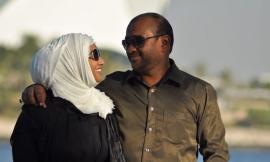
Marriage is very important in Islam, but American Muslims may worry about their ability to find a spouse. Without doubt, the process of getting married has challenges, and a thoughtful reflection upon the life example of Muhammad, the prophet (pbuh) and the guidance from the Holy Quran can help us meet and exceed any barriers.
1. Believe that one can find a spouse
“It is He who created you from one soul and created from it its mate that he might dwell in security with her.” (Quran, 7:189)
Many single Muslims have simply given up on the idea that they can find a spouse. This loss of faith comes mainly from feelings of self or circumstantial inadequacy.
- Divorced or widowed -
- Age – middle age or senior
- Ethnic group
The life example of Prophet Muhammad (SAW) includes the action of him marrying an older woman who was a widow – Khadijah bint Khuwaylid (RA), a divorced woman Zaynab bint Jahsh (RA), and a woman from a different tribe and ethnic group, Safiyah bint Akhtab (RA) who was from the Bani Nadir, a Jewish tribe.
Muslim women of various circumstances can see that marriage is the preferred life circumstance and thus a husband is not out of reach. Muslim men can see that they should marry women that are older, divorced, widowed or even a different ethnic group than themselves. .
2. Be Careful in Rejection of Potential Spouses
Marry those among you who are single, or the virtuous ones among yourselves, male or female: if they are in poverty, Allah will give them means out of His grace: for Allah encompasses all, and He knows all things.
Suratul Nur 24: 32
Sometimes Muslims are not married because either they or their family have spurned a potential mate in preference of:
- someone of same race
- someone from ‘back home’
- someone of high ‘class’ or high economic standing
Although there are certainly situations where a suggested union is not recommended, the ‘isms’ (nationalism, racism, classism) hamper the marriage prospects. Muslims who migrated to the United States from countries with large or predominate Muslim populations will often have different tribes, but similar ethnicities. The Muslim community in the U.S. is a multi-cultural, multi-ethnic reality with people Indigenous to North America, or from Latin America, Africa, Asia, Middle East, Europe and Islands across the globe. Although there is nothing wrong with marrying within one’s ethnic group, the Prophet Muhammad (SAW) sought to undo the people’s inclination towards feelings of tribal superiority and prejudice. Several of the Sahabah married women of different ethnic group and tribes. The prophet instructed the believers to look for potential mates by noting their Islamic qualities and sincerity of belief.
Abu Huraira reported: The Messenger of Allah, peace and blessings be upon him, said, “If someone proposes marriage to you whose religion and character satisfies you, then you should accept it. If you do not do so, there will be trials on the earth and the spread of corruption.”
Sunan al-Tirmidhī
3. Steer Away From Delay and Haphazard
There is no more certain way to not get married than to wait or expect to find a spouse through some random means or through no real effort at all.
- Community standards not promoting or creating an environment for marriage
- Reliance upon internet marriage sites
- Parental pressure
- waiting
- postponing
It was narrated from Hazrat Aishah (RA) that:
the Messenger of Allah said: “Marriage is part of my sunnah, and
whoever does not follow my sunnah has nothing to do with me.
Get married, for I will boast of your great numbers before the nations.
Marriage is not something to be left up to chance. Marriages become a family, that family becomes part of the community, and these communities are our Ummah.
Some communities are plagued with large numbers of single or divorced Muslims, a high percentage of Muslim men married to non-Muslim women even though there are several available Muslim women or a disconnectedness where it is difficult to determine who is single and who is not. In these instances, the leadership and community must provide opportunities for marriage. A database of available singles, marriage conferences, training on how to be a Wali, honest background checks and recommendations, and premarital counseling are services that help singles find mates.
When we look to the life example of Muhammad, the prophet (pbuh), Lady Khadijah who was a successful businesswoman initiated the marriage by sending word of her interest and proposal. From this we can gather that it is permissible in Islam to actively seek out marriage.
Also, the prophet (pbuh) advised Muslims to be proactive in their spousal search. Jabir ibn ‘Abdullah is reported to have said: “The Messenger of Allah (peace and blessings of Allah be upon him) said:’ When one of you asked a woman in marriage, if he is able to look at what will induce him to marry her, he should do so.”
Many singles and their families search Muslim marriage websites, but this has mixed results. Single Muslims should ask about someone they are interested in, travel to meet someone recommended by family, friends or an Islamic marriage website and reciprocate by being open to suggested offers when they come.
There is no need to deliberately delay marriage to pursue a career, get more education, or help parents. Time is not something which any of us have control over.
Ibn Abbas reported: The Messenger of Allah, peace and blessings be upon him, said, “Take advantage of five before five: your youth before your old age, your health before your illness, your riches before your poverty, your free time before your work, and your life before your death.”
: Shu’ab al-Imān
Marriage is a priority and the family obligations and life goals that a single Muslim may have will be enhanced with a partner rather than hampered.
the Messenger of Allah said: “There is nothing like marriage, for two who love one another.”
Sunnah ibn Majah








Add new comment